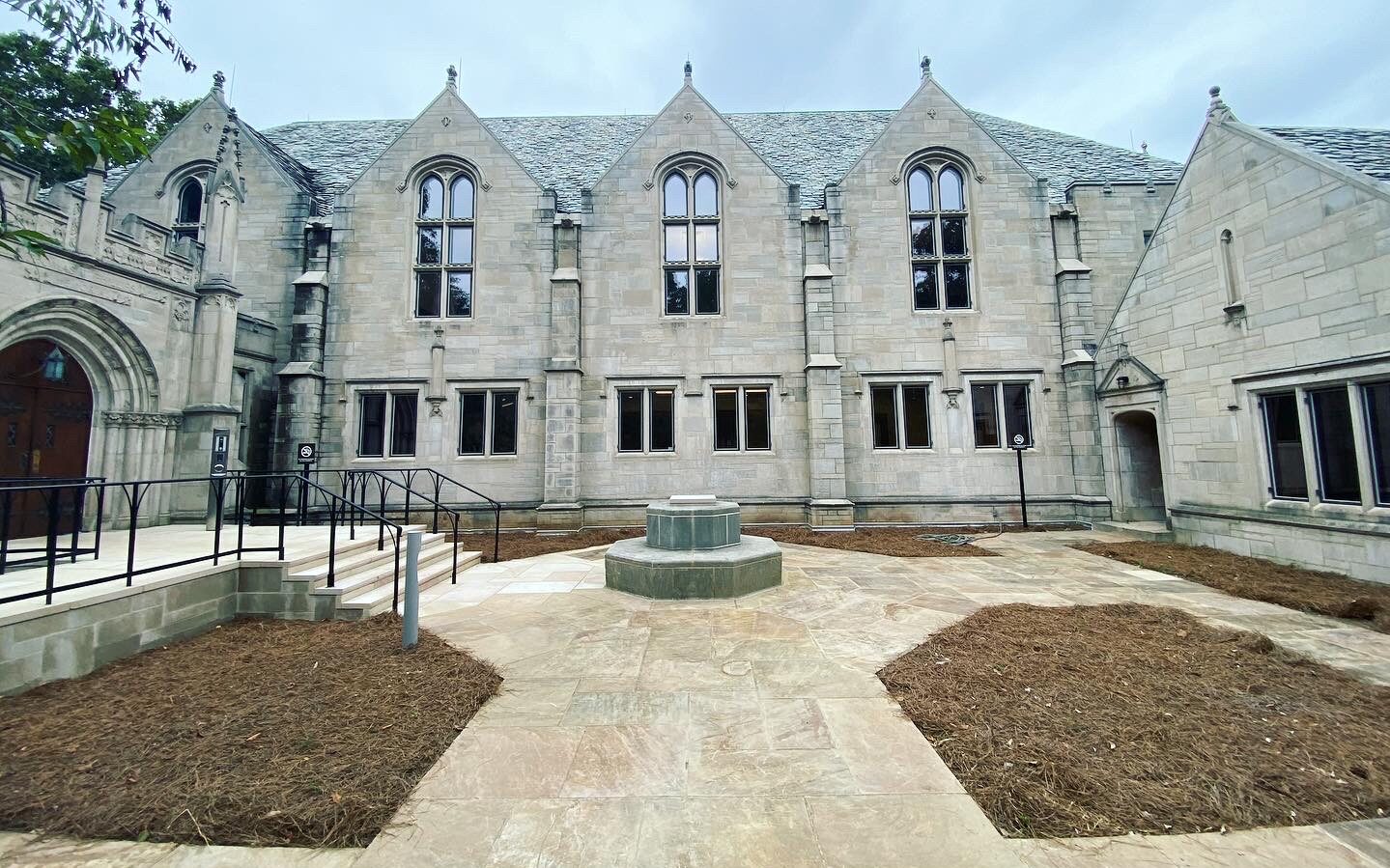Guided by the university’s FutureVU and FutureVU Sustainability initiatives, 1101 19th Avenue South was designed as a flexible space for the university and to achieve LEED Green Building Education credit. In order to earn a LEED Green Building Education credit (certification pending), the project underwent a case study which included:
- Student-driven embodied carbon calculations
- Describing major sustainability measures and embodied carbon calculations within the case study
- Comprehensive signage that will educate the visitor on the various sustainability measures incorporated into the building as it was being renovated
During the design and renovation of 1101 19th Avenue South building, these key goals were incorporated:
- Historic preservation
- Retention of as much of the original structure as possible to retain embodied energy of the existing structure
- Emphasis and maintenance of existing urban density, walkability and access to mass transportation
- Energy conservation, energy efficiency and avoidance of on-site combustion by using electricity only for HVAC and water heating
- Preservation of existing vegetation and soils, which are long-since adapted to the natural water cycle, thereby preserving the existing biodiversity and avoiding additional demands on city’s potable water system
- Increased student involvement to maximize learning opportunities
